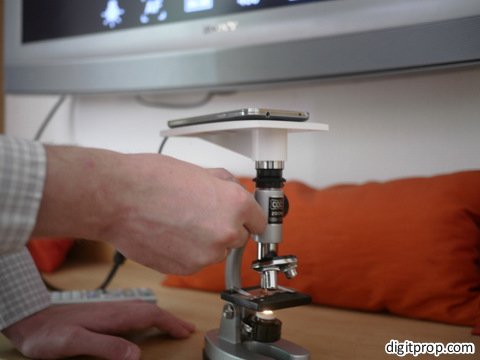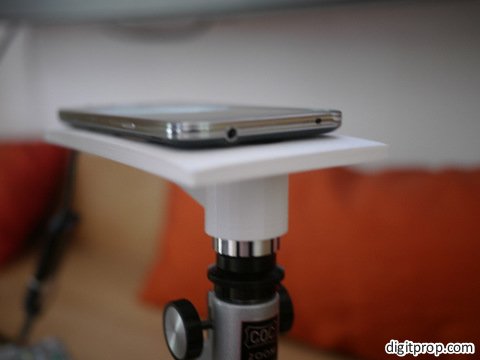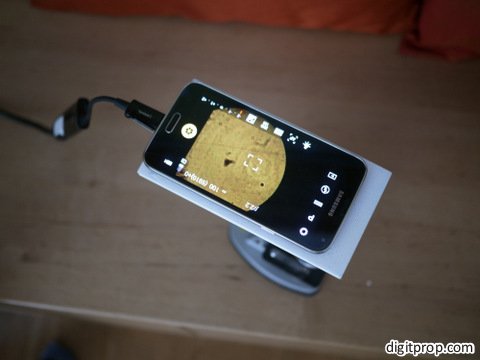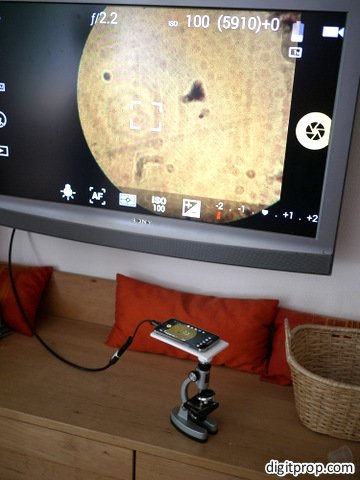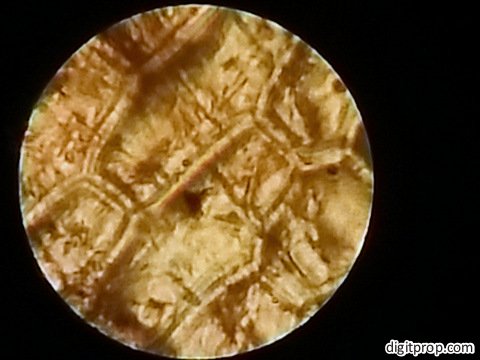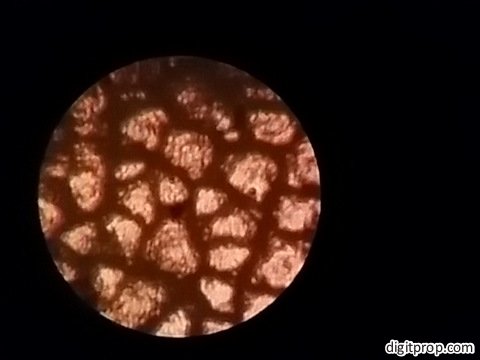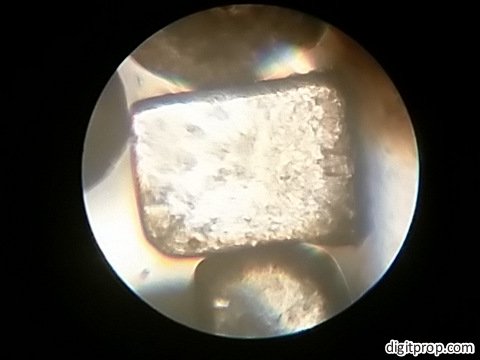Mobile phone microscope adapter
Recently my kids inherited a very old children’s microscope, which had been used in elementary school. As these low budget microscopes go, it’s resolution and chromatic fidelity were abysmal, and despite featuring a decent nominal magnification of x500, it was more or less a glorified magnifying glass.
It’s really difficult to get reasonable images out of such an instrument, and even more difficult to have your kids look through the ocular and make sense of what they are seeing.
However, modern mobile phones have surprisingly decent cameras, and they actually work well when held up to the ocular of a microscope – assuming you can manage to hold the phone very steady and at the exact right angle.
Enter 3D printing: I started up Blender, designed a simple platform for my phone with a tube to go over the microscope ocular, and blam – nice microscope images on my phone.
Initially I added brackets to hold the phone in place, but it turns out that a simple table is easier to handle – and accidentally moving the phone is much less of a problem than I originally anticipated.
Here is a top view:
Next, I attached my phone to our flatscreen TV via a USB/HDMI adapter, which means we now had a huge microscope image for the whole family to look at:
Very nice indeed. Finally together we could make sense of the blurred, strangely colored blobs that appeared in the microscope.
Here are cells from an onion skin:
And these are muscle cells from a bovine tongue, if I remember correctly (and the label on the ancient slide was still correct):
Salt crystals:
As you can see from the images, it’s not perfect, and the resolution is rather limited, but still. By the way, when you are shopping for a kids’ microscope, don’t be fooled by the insane magnifications the manufacturers claim. It’s easy to get a 1000x magnification, but the actual resolution (i.e. the threshold distance at which two dots become two clearly separated structures) will still be very limited, or else the price extremely high.
Here is the STL file (which is more of an inspiration, since it probably won’t fit on your microscope anyway):
 This work is licensed under a Creative Commons Attribution-NonCommercial-NoDerivatives 4.0 International License. For more details on what you can and cannot do with my work, see here.
This work is licensed under a Creative Commons Attribution-NonCommercial-NoDerivatives 4.0 International License. For more details on what you can and cannot do with my work, see here.
